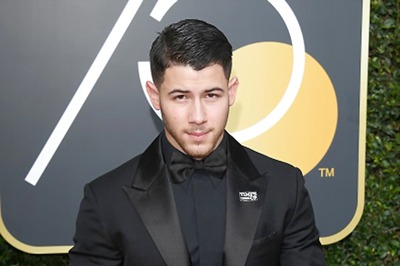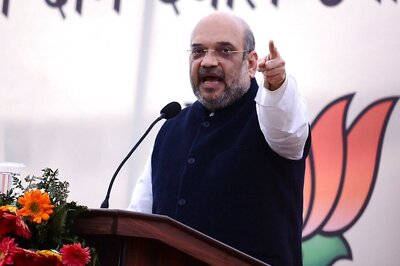
views
Popular Patronymic Viking Last Names
Patronymic surnames were very common among people in the Scandinavian region (which includes Norway, Sweden, and Denmark). “Patronymic” means a person’s last name is based on the first name of their father, with last names ending in -son for boys and -dottir for girls. For instance: Albertsen - Means “son of Albert.” Albert is a Germanic name meaning “noble.” Alfson - Means “son of Alf”; variants include “Alfsen” or “Alfsson.” Alf translates to “elf.” Andersen - Means “son of Anders.” Anders translates to “manly” or “brave.” Arneson - Means “son of Arne.” Arne translates to “eagle.” Bengtsson - Means “son of Bengt.” Bengt translates to “blessed.” Berntsen - Means “son of Bernt.” Bernt translates to “strong” or “brave bear.” Dagsson - Means “son of Dag.” Dag means “day” or “bright” in Old Norse. Einarsdottir - Means “daughter of Einar.” Einar is an Old Norse name meaning “lone warrior.” Eiriksson - Means “son of Eirik.” Eirik is Old Norse for “eternal ruler.” Evensen - Means “son of Even.” Even is Old Norse for “happy warrior” or “fortune.” Flókadóttir - Means “daughter of Flóka.” Flóka is a Norse name meaning “tuft of hair.” Gormsson - Means “son of Gorm.” Gorm is Old Norse for “he who worships God.” Gulbrandsen - Means “son of Gulbrand.” Gulbrand means “golden sword.” Gunnarsson - Means “son of Gunnar.” Gunnar is Old Norse for “battle warrior.” Gunvaldsen - Means “son of Gunvald.” Gunvald translates to “battle ruler.” Halvorsen - Means “son of Halvor.” Halvor translates to “guardian of the rock.” Hansdottir - Means “daughter of Hans.” Hans is a Germanic and Scandinavian name, meaning “God is gracious.” Hansen - Means “son of Hans.” Haraldsen - Means “son of Harald.” Harald translates to “leader of the army.” Holgersen - Means “son of Holger.” Holger translates to “island spear.” Hrolfsson - Means “son of Hrolf.” Hrolf is an Old Norse name meaning “famous wolf.” Iverson - Means “son of Iver.” Iver (or Ivarr) translates to “yew warrior.” Jacobsen - Means “son of Jacob.” Jacob is a Hebrew name meaning “to follow.” Jansson - Means “son of Jan.” Jan is a Dutch name meaning “God is gracious.” Jensen - Means “son of Jens.” Jens is a variant of Johannes, meaning “God is gracious.” Ketilsson - Means “son of Ketil.” Ketil means “kettle” or “cauldron” in Old Norse. Knutsen - Means “son of Knut.” Knut translates to “knot,” from the Old Norse "knútr.” Larssen - Means “son of Lars.” Lars means “laurelled,” derived from ancient Greek. Leifsson - Means “son of Leif.” Leif means “heir” or “descendant” in Old Norse. Mangusson - Means “son of Magnus.” Magnus means “great” or “big,” derived from Latin and later popular in Scandinavia. Ohlson - Means “son of Olaf.” Olaf is a Norse name meaning “legacy of ancestors.” Olafsson - Means “son of Olaf.” Oliversen - Means “son of Oliver.” Oliver is derived from Latin and means “olive tree.” Ovesen - Means “son of Ove.” Ove is an Old Norse name meaning “edge of a sword.” Peerson - Means “son of Per.” Per means “rock” or “stone.” Svensson - Means “son of Sven.” Sven is a name meaning “young warrior.” Thorsdottir - Means “daughter of Thor.” Thor is the Norse god of thunder, with the name itself meaning “thunder.” Thorsson - Means “son of Thor.” Torbjornsson - Means “son of Torbjorn.” Torbjorn is a name meaning “Thor’s bear.”
Powerful Viking Last Names for Warriors
It was also common for Viking-era people (especially warriors) to adopt surnames based on their personality traits and physical characteristics. These names would usually (although not always) reflect their strengths, like a mighty king with the surname “Bloodaxe” or a wise woman with the surname “Deep-Minded.” Many recovered Viking names have been recorded in works such as The Book of Settlements: Landnámabók. Arvid - Means “eagle of the woods.” Asgeir - Means “spear of the gods” or “divine strength.” Audhild - Means “wealth, battle.” Bloodaxe (Blóðøx) - Combining the words “blood” and “axe,” this was a nickname given to Erik Bloodaxe, an infamous Viking king. Dagfin - Means “day finder” or “discoverer of the day.” Deep-Minded - This last name belonged to a settler of Iceland named Aud the Deep-Minded; the name itself suggests great wisdom and introspection. Eirikr - Means “ever ruler” or “eternal ruler.” Fairhair (Harfagr) - This was the last name of King Harald Fairhair, who famously became the first king of Norway. Flat-Nose (Flatnefr) - This was the nickname given to Ketill “Flatnose” Björnsson, a Norse king of the Isles. Greycloak - Harald Greycloak (also called “Harald Grey-hide”) was a king of Norway descended from Harald Fairhair. Hakon - Means “high son.” Variants include “Haakon” or “Håkan.” Hávarðr - Means “high guardian” or “brave protector.” Haven-Key - A surname recorded in The Book of Settlements, belonging to Hrafn Haven-Key. Hell-Hide - A surname recorded in The Book of Settlements, belonging to Geirmund Hell-Hide. Helvig - Means “lucky war” or “healthy war.” Ingolf - Means “wolf of Ing,” referring to the god Yngvi or Frey. Lykke - Means “happiness” or “good fortune.” Ragnulf - Means “wise wolf.” Serpent-Tongue - The surname of Gunnlaug Serpent-Tongue, a warrior in one of the Icelandic sagas. Skullsplitter - The moniker given to Thorfinn Einorsson (Thorfinn Skullsplitter), a 10th-century Jarl of Orkney. The Boneless - The moniker given to Ivar Ragnarsson, often called “Ivar the Boneless,” possibly due to a skeletal condition that gave him weak bones. The Champion - A surname recorded in The Book of Settlements, belonging to Leidolf the Champion. The Fast-Sailing - A surname recorded in The Book of Settlements, belonging to Thengil the Fast-Sailing. The Red - A surname recorded in The Book of Settlements, belonging to Audun the Red and Sighvat the Red, among others. The Sage - A surname recorded in The Book of Settlements, belonging to Thorir the Sage, among others. The Singe-Horn - A surname recorded in The Book of Settlements, belonging to Bjorn Singe-Horn. The Squint-Eyed - A surname recorded in The Book of Settlements, belonging to Thorstein the Squint-Eyed, among others. The Strong - A surname recorded in The Book of Settlements, belonging to Thormod the Strong and Ingolf the Strong, among others. The Wise - A surname recorded in The Book of Settlements, belonging to Ljot the Wise. Thorgard - Means “Thor’s protection.” Thorn-Foot - A surname recorded in The Book of Settlements, belonging to Thorgeir the Thorn-Foot. Troll-Burster - A surname recorded in The Book of Settlements, belonging to Thorir the Troll-Burster. Trygg - Means “true,” “faithful,” or “trustworthy.” Unfrid - Means “quarrelsome” or “restless.” Vikingsson - Means “son of the Viking.” Vilulf - Means “wolf’s will.” War Tooth - This was the nickname given to Harald Röreksson (also known as Harald Wartooth), a king of Denmark. Wisdom-Slope (Manvitsbrekka) - An Old Norse nickname belonging to Astrid Wisdom-Slope, conveying intelligence and wisdom. Yngvar - Means “Yngvi’s warrior.”
Viking Last Names Based on Gods & Mythology
The Norse gods could also be a source of inspiration for Viking names; for example, it wasn’t uncommon for a warrior to have “Thor” in his name, after the god of thunder. Take a look at these Viking last names based on gods and mythology: Balder - Means “Prince.” Balder (or Baldr) is the Norse god of light, beauty, and peace. Brynja - Means “armor” and is associated with warriors and fortitude in Norse mythology. Freyadottir - Means “Freya’s daughter.” Freya is the Norse goddess of love, beauty, magic, and war. Freyrsson - Means “Freyr’s son.” Freyr is the Norse god of fertility and prosperity. Hrafn - Means “raven.” In Norse mythology, Odin is commonly associated with ravens. Njordsson - Means “son of Njord.” Njord is the Norse god of the sea (and wealth). Odinson - Means “son of Odin.” Odin is the Norse Allfather, god of wisdom and battle. Saga - Means “seeing one” or “prophet.” Saga is sometimes considered another name for Frigg, Odin’s wife. Skadi - Means “shadow.” Skadi is a goddess of winter and bowhunting in Norse mythology. Thorrad - Means “Thor’s protection.” Thorstein - Means “Thor’s stone.” Valdis - Means “goddess of the dead.” Vidarsson - Means “son of Vidar.” In Norse mythology, Vidar is a son of Odin. Vigdisdottir - Means “daughter of Vigdis.” The name “Vigdis” in turn means “war goddess.”
Toponymic Viking Last Names
Some old last names are a reflection of the place in which a person was born, or lived during their lives. Topographical features (hills, valleys, rivers, and other landmarks) near a person’s home could all factor into their surname. For example, here are a few toponymic Viking last names: Austr - Means “east.” Dahl - Means “near a valley.” Flett - Refers to a person from Delting, Shetland. Halcro - Refers to someone from South Ronaldsay. Haugen - Means “tiny hill,” derived from the Old Norse “haugr.” Heddle - Refers to someone living near a stream or lake. Holgata - Means “hollow path.” Krog - Means “someone from Krog.” Landvik - Means “land inlet.” Linklater - Referring to someone from South Ronaldsay or North Sandwick. Lund - Means “someone who lives near a grove.” Ness - Means “from the headland.” Toft - Means “homestead.” Voll - Means “near a meadow.” Wastergaard (Westergard) - Means “western farm.”
Viking Last Names Inspired By Occupation
Plenty of last names (from various cultures) are based on what a person’s ancestors did for a living, including a few Viking last names. Take a look at the following occupation-based Viking surnames: Bonde - Means “farmer.” Fisker - Means “the high warden.” Havard - Means “high guardian.” Hvalman - Means “whaler.” Pihl - Means “archer.” Varangr - Means “sailor.”
Nature-Based Viking Last Names
If you look at names from the Viking era, you’ll notice nature is a recurring motif, which is unsurprising, since Norse mythology has many beliefs concerning nature and its connections to the gods. Here are several Scandinavian and Viking last names with references to nature: Aalto - Means “wave.” Arnulf - Means “wolf eagle.” Årud - Means “river” and “clearing.” Bakke - Means “slope, hillside.” Berg - Means “mountain.” Bjerke - Means “birch.” Blom - Means “flower” or “bloom.” Dalgaard - Means “valley” and “farmstead.” Falk - Means “falcon.” Fjord - Means “sea inlet.” Gunnulf - Means “fighting wolf.” Hagen - Means “enclosure” or “pasture.” Hägglund - Means “to hew” and “forest, grove.” Haven - Means “harbor.” Isberg - Means “ice mountain.” Kjarr - Means “thicket.” Kolbeck - Means “cold stream.” Lind - Means “linden tree.” Lund - Means “serene grove.” Skógr - Means “forest.” Strand - Means “seashore.” Torst - Means “thirst for life.” Vik - Means “bay” or “inlet.”
Historically Significant Viking Last Names
While there’s a plethora of Viking-era surnames out there, some are more recognizable because they belonged to legendary Vikings, warriors, and kings. Anyone who’s studied Viking history even a little has probably heard names like “Ragnar Lodbrok” before—so, to that end, here’s our collection of historically significant Viking surnames: Bluetooth - The Viking king Harald Bluetooth (Harald Gormsson) is recognized for unifying Denmark and Norway. Eriksdottir - Freydis Eriksdottir was a famous Icelandic explorer, the daughter of Erik the Red and sister of Leif Erikson, who traveled to Vinland (present-day continental America). Erikson - Explorer Leif Erikson (or Leif the Lucky) was perhaps the first European to set foot on continental America. Halfdan - Halfdan Ragnarsson was the son of Ragnar Lodbrok, a commander of the Great Heathen Army, and the first Viking king of Northumbria. Hamundarson - Gunnar Hamundarson was an Icelandic chieftain who features in the Icelandic sagas, specifically the Njáls saga. Haraldsson - There were several notable Haraldssons during the Viking era, including Rodulf Haraldsson (a Viking leader who raided the British Isles) and Godfrid Haraldsson (the son of King Harald Klak in Denmark). Ironside - Bjorn Ironside was a legendary Viking chief known for his prowess in battle. Ivarsson - Leifsson - Thorkell Leifsson was the son of explorer Leif Eriksson and became chief of his settlement after his father died. Lodbrok - Ragnar Lodbrok was a Viking hero, as well as a king of Sweden and Denmark; he is known for his many raids on the British Isles. The name “Lodbrok” means Ragnarsson - Ragnar Lodbrok (or “Lothbrok) had several notable sons, including (according to legend) Sigurd Ragnarsson, Ubbe Ragnarsson, Ivar the Boneless, Halfdan Ragnarsson, and Bjorn Ironside. Snake-in-the-Eye - Sigurd Ragnarsson, Viking warrior and Danish king, was also known as Sigurd Snake-in-the-Eye.
Famous Viking Last Names
Plenty of famous people today (or, at least, prominent figures from the last century) have last names with Scandinavian and Norse roots. Will any of them surprise you? Take a look: Ibsen - Means “son of Ib.” This is the last name of Henrik Ibsen, a famous Norwegian playwright known as the “father of realism.” Johansson - Means “son of Johan.” This name is best known as the surname of actress Scarlett Johansson. Lindgren - Means “lime tree branch.” Swedish writer Astrid Lindgren is best known for writing the Pippi Longstocking children’s books. Mikkelsen - Means “son of Mikkel.” Actor Mads Mikkelsen is notably from Denmark. Mortensen - Means “son of Morten.” Actor Viggo Mortensen has this surname. Nobel - Means “noble.” This was the surname of Alfred Nobel, the Swedish chemist who established the Nobel Prize. Pattinson - Although an Irish and Scottish name, Pattinson (“son of Patrick”) is patronymic, suggesting a possible Scandinavian influence. Actor Robert Pattinson has this surname. Skarsgård - Means “Skares farm” or “farm on the skerries” (a skär is a rocky outcrop). Actor brothers Alexander and Bill Skarsgård have this last name. Sutherland - Means “southern land.” The late actor Donald Sutherland and his son, actor Kiefer Sutherland, both share this surname. Watson - Means “son of Watt.”
English Last Names with Norse Origins
The Vikings were known for their fighting spirit—and their raiding. During the Vikings’ heyday, they raided areas across the British Isles and even mainland Europe, including Francia. They also began to settle in areas of England, Ireland, and beyond, leading to the creation of names with a blend of English and Scandinavian roots. Take a look: Alger - Means “elf spear.” Allgood - Potentially a variation of the Old Danish “Algot” or Swedish “Algut.” Bond - Means “farmer,” with roots in the Old Norse term “bóndi.” Bushby - A habitational name referring to locations called “Bushby,” with roots in the Old Norse term “buskr” (bush) and “bȳ” (homestead). Collings - A name signifying a descendant of “Colin” or “Coll,” possibly also derived from the Old Norse “Kollungr,” meaning “dark.” Dowsing - Derived from the Old Scandinavian name “Dúsi,” which means “calm.” Eetelbum - A name with Norse origins but no specific meaning. Fell - A name derived from the Old Norse “fjall,” meaning “high, barren land.” Grime - A name with Scandinavian origins, meaning “masked person” or “fierce.” Gunn - A name meaning “war” or “battle” derived from the Old Norse “gunnr.” Hacon - Derived from the Old Norse “Haakon,” meaning “high son.” Hemming - Derived from the Old Norse “Hemingr,” meaning “skin of the shanks.” Hobson - A patronymic surname meaning “son of Robert” or “son of Hob.” Knott - A topographic name for someone living near a small hill; also related to the Old Norse “knútr,” meaning “knot.” Orme - Derived from the Old Norse “ormr,” meaning “serpent.” Osborne - Derived from Old English with roots in the Old Norse name “Ásbjǫrn” (god bear) as well. Quinnell - A patronymic surname meaning “descendant of Ceanail.” Rogers - A patronymic surname meaning “son of Roger,” with Roger having roots in the Danish name “Hrothgar.” Rolf - Derived from the Old Norse “Hroflr,” meaning “famous wolf.” Seagrim - An English name meaning “sea servant,” potentially derived from the Old Scandinavian “Sǽgrímr.” Storey - Derived from the Old Norse “Stóri,” meaning “large” or “big.” Thomassen - A patronymic surname meaning “son of Thomas.” Tovey - Derived from the Old Norse “Tófi,” which may be a diminutive form of other names with “Thor” as an element.
Celtic Viking Last Names
As we’ve mentioned above, Vikings settled in Ireland and Scotland as they expanded out of Scandinavia. Just as there are English names with Scandinavian roots, there are also many Celtic names from Ireland and Scotland that derive from Norse terms or utilize the Vikings’ patronymic naming system. For example: Bains - Means “straight” or “tall.” Broder - Means “brother.” Dubhghaill (Doyle) - Means “dark foreigner” (referring to a person of Danish origin). MacDonald - Means “son of Domhnall.” MacLeod - Means “son of Leod.” McAuliffe - Means “son of Olaf.” McCotter - Means “son of Otir.” McIver - Means “son of Iver.” McManus - Means “son of Magnus.” O’Connor - Means “descendant of Conchobhar.” O’Keefe - Means “descendant of Caomh.” O’Loughlin - Means “son of Lochlann.” O’Rourke - Means “son of Ruarc.” Sugrue - Means “descendant of Siochfhradh.” Siochfhradh is a Gaelicized version of the Norse “Sigfrid.” Tierney - Means “descendant of Tighearnach.”
Popular Viking First Names
While we’re discussing Viking names, let’s take a look at common first names, too! Some of them may even look familiar, since Scandinavian patronymic surnames incorporate the father’s first name. Here’s our collection of common masculine and feminine names among Vikings: Masculine names: Arne - Means “eagle.” Bjørn - Means “bear.” Erik - Means “absolute ruler.” Frode - Means “wise and clever.” Gorm - Means “he who worships God.” Harald - Means “lord and ruler.” Hrolf - Means “famous wolf.” Ivar - Means “archer.” Leif - Means “descendant.” Njal - Means “giant.” Olaf - Means “ancestor’s legacy.” Rune - Means “secret.” Sigurd - Means “victorious protector.” Skarde - Means “with cleft chin.” Torsten - Means “Thor’s stone.” Ulf - Means “wolf.” Feminine names: Astrid - Means “beautiful, loved.” Bodil - Means “penance, fight.” Frida - Means “peace.” Estrid - Means “god, beautiful.” Gudrun - Means “god, rune.” Helga - Means “sacred.” Inga - Means “of the god Inge.” Liv - Means “of life.” Signe - Means “the one who is victorious.” Sigrid - Means “victorious horsewoman.” Revna - Means “raven.” Sif - Means “wife, bride.” Thyra - Means “helpful.” Tove - Means “dove.” Ulfhild - Means “wolf, battle.” Yrsa - Means “wild, she-bear.”
More About Viking Naming Conventions
Viking last names would change with each generation. That’s because Vikings used patronymics to determine their surnames, as mentioned above. When a child was born, that child’s last name would be their father’s first name with the added suffix -son, -sson, or -sen (if they were a boy) or -dottir (if they were a girl). Thus, each generation in a family had a different last name, evolving to honor the father of the previous generation. For example, say a father named “Gorm” had a daughter; that child’s last name would be “Gormsdottir.” Vikings did sometimes use matronymics (using the mother’s first name in the child’s surname) as well, although patronymics seem to have been more prominent. Over time, the Vikings’ patronymic (and matronymic) surnames became the last names we see today. Even modern names like “Olson” or “Jansson” still reflect the old Viking naming conventions; they just don’t change with the generations anymore!




















Comments
0 comment